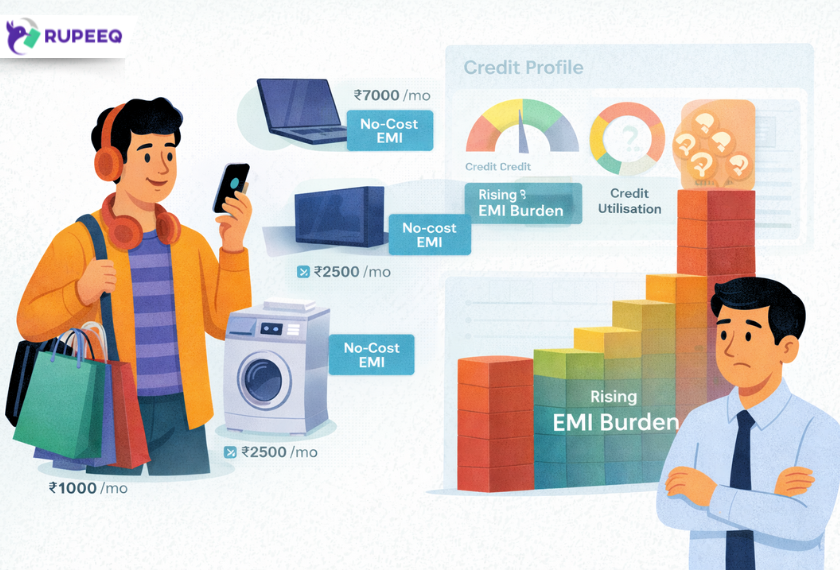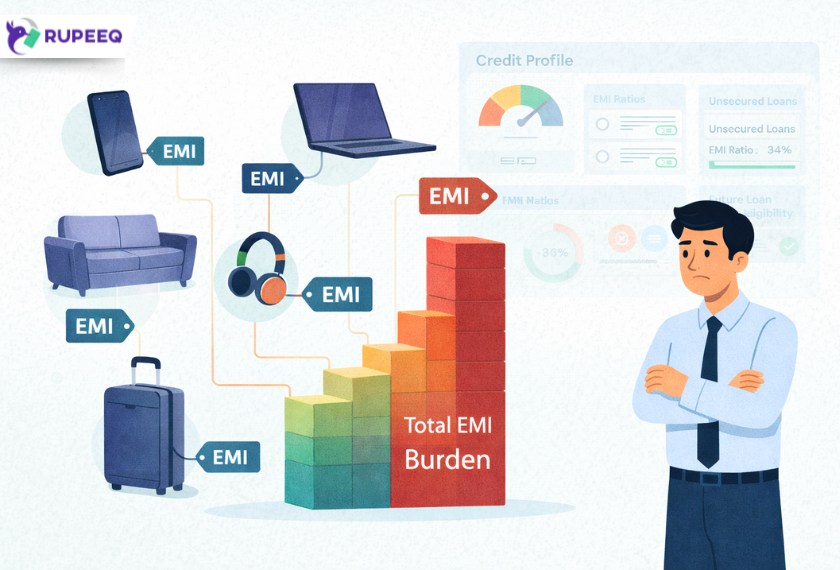A good credit score is one of the most critical factors in determining your financial health and loan eligibility. Whether you are applying for a personal loan, home loan, or credit card, lenders heavily rely on your credit score to assess your repayment ability and overall creditworthiness.
In this blog, we’ll explore why having a good credit score is vital for loan approval, how it impacts loan terms, and useful tips to improve and maintain your credit health.
What is a Credit Score?
A credit score is a three-digit number that represents your creditworthiness based on your financial history. In India, credit scores typically range from 300 to 900, with 750 and above considered a good score.
Credit scores are generated by credit bureaus such as:
- CIBIL (Credit Information Bureau India Limited)
- CRIF High Mark
- Experian
- Equifax
Why a Good Credit Score Matters for Loan Approval
A high credit score is essential for securing loans, and here’s why it matters:
Faster Loan Approvals
Lenders use credit scores as a quick way to assess an applicant’s credit risk. A good score reduces processing time since it signals responsible financial behavior.
Example:
Rahul applied for a personal loan of ₹5 Lakhs. Since his credit score was 780, his loan was approved within 24 hours with minimal paperwork.
Lower Interest Rates
A higher credit score makes you eligible for loans at lower interest rates, saving you money over the loan tenure.
Why it matters:
- Lower EMIs reduce financial burden.
- Higher scores often lead to exclusive offers from banks and NBFCs.
Example:
Amit and Priya applied for a home loan of ₹30 Lakhs. Amit, with a score of 650, was offered an interest rate of 9%, whereas Priya, with a score of 810, secured a 7.5% rate, saving her a substantial amount in interest payments.
RupeeQ Tip: Regularly check your credit score free on RupeeQ and take steps to improve it before applying for a big loan.
Higher Loan Amounts
Your credit score directly influences the loan amount lenders are willing to offer. With a good score, you can borrow higher amounts for significant expenses like home purchases or business expansion.
Example:
With a credit score of 800, Raj was able to secure a ₹20 Lakh business loan, whereas his colleague with a score of 650 was eligible only for ₹10 Lakhs.
RupeeQ Tip: Always maintain a healthy credit mix by responsibly managing secured and unsecured credit to boost your score.
Better Negotiation Power
Lenders are more willing to offer favorable terms, such as longer repayment tenures, lower processing fees, and flexible prepayment options to applicants with high credit scores.
Example:
Nisha, with a credit score of 780, successfully negotiated a waiver on processing fees and secured a flexible repayment tenure on her car loan.
RupeeQ Tip: Use your high credit score as leverage when negotiating with lenders for better loan terms.
Approval for Credit Cards with Higher Limits
A strong credit score allows you to qualify for premium credit cards with high credit limits, better rewards, and benefits like travel perks, cashback, and lower forex charges.
Example:
Aditya’s credit score of 820 helped him get approved for a premium travel credit card with exclusive airport lounge access and bonus reward points.
RupeeQ Tip: Use credit cards wisely to maintain a low credit utilization ratio and avoid a drop in your score.
How to Improve Your Credit Score for Loan Approval
If your credit score is not where you want it to be, here are some steps to improve it:
Pay Bills on Time
Timely payment of credit card dues, EMIs, and utility bills positively impacts your credit history.
Keep Your Credit Utilization Low
Avoid maxing out your credit cards and keep utilization below 30% of your available credit limit.
Avoid Frequent Loan Applications
Each new loan application results in a hard inquiry, which can lower your credit score. Apply only when necessary.
Maintain a Healthy Credit Mix
A balanced mix of secured (home, car loan) and unsecured (credit card, personal loan) credit can enhance your score.
Regularly Check Your Credit Report
Identify errors, discrepancies, and fraudulent activity by monitoring your credit report periodically.
Common Mistakes That Lower Credit Scores
Avoid these common mistakes to maintain a good credit score:
- Missing EMIs or Credit Card Payments.
- Exceeding Your Credit Limit Frequently.
- Applying for Multiple Loans in a Short Period.
- Ignoring Your Credit Report for Errors or Fraud.
- Closing Old Credit Accounts That Help Build Credit History.
How Often Should You Check Your Credit Score?
Checking your credit score regularly helps you stay on top of your financial health. It’s recommended to check your score:
- Before applying for a loan or credit card.
- After clearing off debts to track improvement.
- At least once every quarter for better credit management.
In a Nutshell Role of Credit Score in Loan Approvals
A good credit score is essential for loan approvals, better interest rates, and access to premium financial products. By adopting responsible credit habits and regularly monitoring your credit report, you can ensure a smooth borrowing experience.
RupeeQ helps you check and improve your credit score effortlessly, ensuring you’re always loan-ready. Take control of your financial future today







